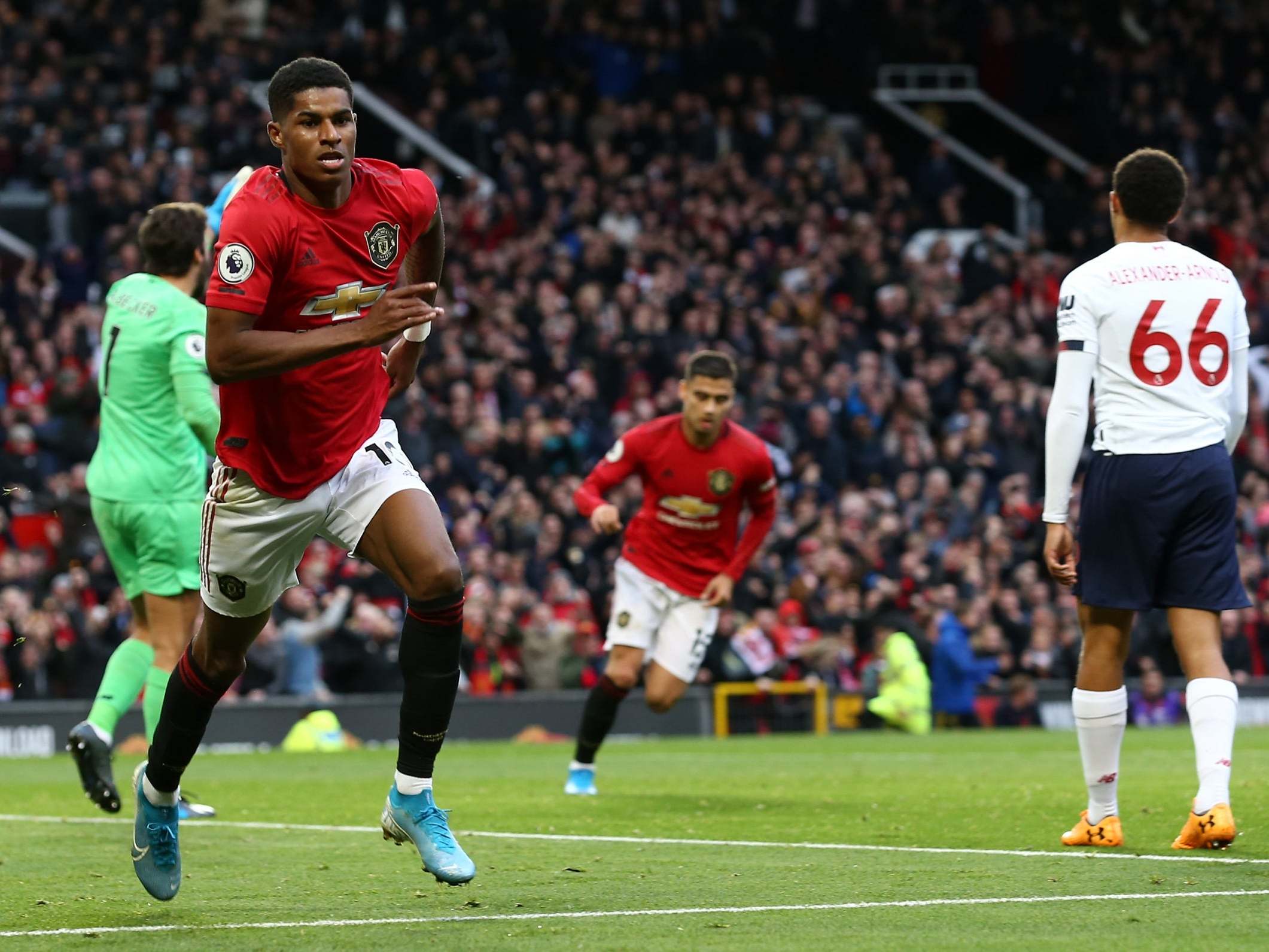Manchester United vs Liverpool: Five things we learned as Adam Lallana scores late equaliser
Five things we learned: Klopp's title contenders pick up a point that could prove important, while Solskjaer's side miss out on morale-boosting win

Your support helps us to tell the story
From reproductive rights to climate change to Big Tech, The Independent is on the ground when the story is developing. Whether it's investigating the financials of Elon Musk's pro-Trump PAC or producing our latest documentary, 'The A Word', which shines a light on the American women fighting for reproductive rights, we know how important it is to parse out the facts from the messaging.
At such a critical moment in US history, we need reporters on the ground. Your donation allows us to keep sending journalists to speak to both sides of the story.
The Independent is trusted by Americans across the entire political spectrum. And unlike many other quality news outlets, we choose not to lock Americans out of our reporting and analysis with paywalls. We believe quality journalism should be available to everyone, paid for by those who can afford it.
Your support makes all the difference.Liverpool held but point could be important
The streak is over but Liverpool will not mind too much. Despite falling one game short of equalling Manchester City’s 18-match winning run from two years ago, Liverpool pick up a point that will feel like three, while Manchester United ruminate on a draw that feels more like a defeat.
Liverpool’s lead is now six points rather than eight but it would have felt much smaller still if not for Adam Lallana’s late intervention, cancelling out Marcus Rashford’s opening goal. Jurgen Klopp will feel aggrieved, not least because of the two tight VAR decisions which threatened to swing this game in United’s favour though also grateful of a point which could prove significant come May.
United miss out on morale-boosting win
How transformative could a victory have been for Ole Gunnar Solskjaer? He and his players were five minutes away from a win that would have banished all the doom and gloom of recent weeks - only their third of the season. Instead, a point means this is their worst start to a league campaign in 33 years.
Solskjaer will take positives from the performance. United were much brighter going forward, even if that was because they were afforded plenty of space. But that can be little solace to a team which sits in 13th place after nine games, with a challenging run of fixtures to come. Three points against historic rivals could have changed the mood around the club, if not the immediate reality. Instead, questions remains.
VAR does anything but end debate
“Liverpool 0 VAR 2,” Martin Tyler remarked on commentary and while opinions will differ on the two decisions at the end of the first half, video technology was certainly a talking point. Origi appeared to be fouled by Lindelof, though probably too far back in the move to disallow the goal. Mané’s handball was not as controversial.
Those incidents will be argued over and over again in the days to come, but the biggest problem with VAR remains that by attempting to implement one set of rules, it has created a whole new category which also need to be followed. How clear is ‘clear’, how obvious is ‘obvious’, and how far is ‘too far back in the move’? A device which threatened to ‘end debate’ has only intensified it.
One-trick ponies nearly win the race
One of the main accusations levelled against Solskjaer’s United of late has been that they are only able to create chances on the counter-attack. Against sides they are expected to beat - like say Astana, Rochdale or Newcastle - that is not usually good enough. But in games like this, it is arguably ideal.
Ignore the controversial nature of Rashford’s goal. Everything which followed the apparent foul went exactly to plan for Solskjaer, who deployed Rashford with Daniel James in a front two that promised pace on the break. Liverpool allowed the pair too much space on the counter-attack, particularly in the fatal first half, and almost paid the price.
Liverpool’s full-backs step up when required
The absence of Salah and usual lack of a creative presence in midfield put added onus on Liverpool’s full-backs to supply their forward line. But in a difficult first half, neither Andy Robertson nor Trent Alexander-Arnold could provide the support required and Liverpool suffered as a result. Aaron Wan-Bissaka did a particularly effective job on Robertson, pressing him high up the pitch.
That changed after the break, however, once Klopp’s side began to control possession and dictate the play on their terms. Robertson was granted more and more freedom on the left as United retreated. Wide play began to look like Liverpool’s best route to goal and it was the Scot’s cross that Lallana converted to equalise five minutes from time.
Join our commenting forum
Join thought-provoking conversations, follow other Independent readers and see their replies
Comments